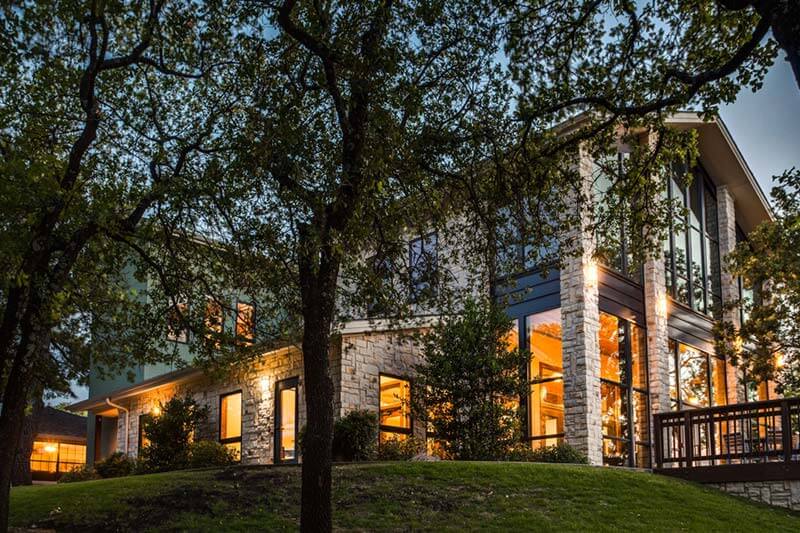If you’re seeking addiction treatment, you may hear the term “cognitive-behavioral therapy” throughout your treatment and recovery. This type of psychotherapy is also known as CBT. Sessions are structured and limited, helping you focus on negative thinking and misconceptions in your life. The goal is to help you react to situations in healthier ways. Learn why CBT is a life-changing approach among the many types of treatment for people seeking addiction recovery.

Why Cognitive-Behavioral Therapy Is Helpful
Cognitive-behavioral therapy treats many issues, but it’s especially helpful during addiction treatment. It helps clients identify faulty or unhelpful ways of thinking, recognize learned patterns of unhelpful behaviors, and increase options for addressing and coping with life challenges. There are fewer sessions involved in cognitive behavioral therapy than in other therapeutic methods, making it one of the quickest ways to make clear improvements in your everyday life.
Cognitive-behavioral therapy helps you get through emotional difficulties in day-to-day living. It can help you:
- Manage mental illness symptoms without medications when appropriate
- Prevent relapse
- Gain an understanding of others’ behaviors and motivations
- Learn more effective ways of coping with stress
- Identify ways to manage emotions
- Resolve conflicts in relationships and communicate better throughout your life
Cognitive-behavioral therapy is also effective after personal loss, overcoming trauma, coping with a diagnosis or illness, and managing chronic physical symptoms. Essentially, cognitive-behavioral therapy can make everyday life easier and happier.
CBT also has improved certain conditions, like substance use disorders, sleep disorders, sexual dysfunction, depression, bipolar disorder, and anxiety. All of these are common in addiction and recovery. Phobias, OCD, disordered eating, and more advanced forms of mental illness also benefit from CBT.
What to Expect During Cognitive-Behavioral Therapy
Cognitive-behavioral therapy sessions typically take place one-on-one with a counselor/primary therapist or in small groups. In these sessions, you’ll learn about addiction, mental health, trauma, problematic sexual behavior, and disordered eating. You’ll also practice ways of managing what you’re enduring. Some of these sessions include relaxation, coping skills, stress management, assertiveness, and resilience.
The first CBT sessions focus on getting to know your therapist and vice versa. The therapist asks clients to identify where they need and want improvement and what their goals are within treatment for emotional and physical health. If medications are needed, you will discuss that with your counselor and primary medical team provider, too.
As a client progresses in their recovery and their work to sustain it, sessions can grow to increasingly identify and share thoughts and feelings. You aren’t alone if you find it hard to open up at first; experience within treatment and with the encouragement of peers on their recovery journey make it become easier. Homework assignments help build on your session focus.

Getting the Most Out of Your Sessions
It’s important to get as much as you can out of your treatment, including cognitive-behavioral therapy sessions. Remember: this is a partnership between you and your therapist. You make decisions and set goals together. Always be honest and open, even when sharing painful or embarrassing thoughts or feelings. There is no judgment. This is a shame-free environment.
Additionally, don’t skip therapy sessions. You need consistency to help establish a strong foundation for recovery.
Just like with anything else worth having in life, you’ll have to work hard for maximum benefit. You might not see instant results, but you’ll notice subtle changes pretty quickly. These changes add up. Part of gaining maximum benefit from CBT comes from completing all of your homework assignments. You only hurt yourself by neglecting the work and breakthroughs in CBT. Moreover, practice in real life makes positive changes second nature.

CBT for Addiction Recovery at Santé Center for Healing
Located in Argyle, Texas, Santé Center for Healing is a family-owned addiction treatment facility that helps clients achieve life-saving, life-affirming, long-term recovery. With over 25 years in the substance abuse field, Santé Center uses the 12 steps along with an array of proven therapies and medical interventions.
We offer multiple levels of addiction treatment services, including:
- Licensed professional assessments for three days
- On-site medical detox for six to 10 days
- Residential treatment for 45–65 days, or even over 100 days for some
- Day and Evening intensive outpatient treatment programs for four months
- Transitional living for three to 24 months
- Intensive Therapeutic
- Workshops specific to both trauma and co-dependency for four days
- Life-long alumni programming
In all levels of care, Santé clinical and medical staff are experts in dual diagnosis treatment to help individuals achieve wellness and balance as we address co-occurring conditions.
If you’re ready to overcome addiction, Santé Center for Healing has the levels of care and the therapeutic expertise to fit your unique needs. Call us today at 866.238.3154 or contact us online.







